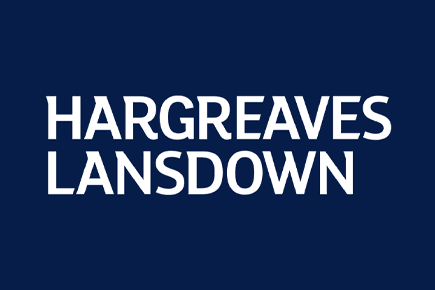Thinking about taking financial advice from a financial adviser is crucial when you’re looking at major financial decisions. My guide to finding a financial adviser near you should help you to better understand what a financial adviser is and if you need to use one.
Some of the best independent financial advisers are not necessarily the cheapest, so I’ll detail what you need to look out for and how much it is likely to cost you.
Also consider: Talk to an independent financial advisor
If you enquiry is regarding transferring a UK pension overseas, contact Dan Ward for advice.
Top financial advisors UK at a glance
- How to Find a Financial Adviser – 7 Steps
- How to Choose a Financial Adviser
- How to Choose a Financial Adviser
- How Much Does a Financial Adviser Cost?
- Questions to Ask A Financial Adviser
- Is it Worth Getting a Financial Adviser or Should You Do it Yourself?
- Can You Access Financial Advice For Free?
- FAQs about financial advisers
- Advisory help desk to speak to you about financial advice
- Book a call back at a time that suits you
- Lines open from 8.30am – 5pm Monday to Friday
Hargreaves Lansdown offer new and existing clients financial advice through their advisory Helpdesk. Their approach is aimed at getting you the right advice and how this might benefit you, with a view on their charging structure and which advisory services they can offer.
Capital at risk.
- Talk through your goals with a financial coach
- A coach will talk through your investment strategy and investment goals
- Benefit from Bestinvest Coaches’ expert knowledge on what’s happening in the markets
Investment coaching from Bestinvest provide qualified financial planners who can help with your investment goals, with no additional charges.
Capital at risk.
- Access to over 14,000 experts in over 200 locations around the world
- Fully-managed investment portfolios
- ISAs, SIPPs and general investment accounts available
With financial advisors all over the UK, True Potential Wealth Management are a fully modernised financial advisory service that harnesses technology in order to provide both private and corporate clients with a transparent service with the sole aim of helping them realise their financial goals.
True Potential provide their clients with a user-friendly, award-winning app from where you can track all your investments and bank accounts in one place for complete peace of mind.
Capital at risk.

- Over 4,000 qualified advisers available nationwide
- Investment and retirement planning
- Wealth management and private clients
At St James’s Place, they have taken a different approach to investment advice. Rather than be tied down to in-house investment managers, at St James’s Place they source external fund managers so you can gain access to leading investment managers from across the globe. You can access face-to-face advice from their highly skilled financial advisers across the UK.
Capital at risk.
How to Find a Financial Adviser – 7 Steps
By using our postcode search tool above, you can find a list of reputable financial advisers and financial planning firms near you. However, finding the best adviser for your unique circumstances requires more consideration than simply picking a name from a list. Below I have listed five steps to take in order to find the best financial advisor for your circumstances:
1. Identify if you actually need financial advice
Simple financial transactions such as saving for your retirement, building your savings, and paying off your mortgage can often be achieved without incurring the cost associated with financial advice. However, individuals with more substantial savings and investments, and those experiencing potentially life-changing events such as an inheritance or the birth of a child, can often benefit from the expertise of financial advice.
2. Identify the level of service you require
Often financial advisers will be keen to lock clients into an ongoing service, however, this isn’t always suited to your circumstances and identifying what could be a one-off issue could help save you ongoing monitoring charges. Another way to avoid being overcharged for the level of service you require is to ascertain whether you require face-to-face advice with a local adviser, or whether remote advice or online services will suffice. The latter can work out cheaper, especially if you are seeking advice in an affluent location such as London.
3. Do you require independent financial advice?
There is a difference in price between restricted advice and independent advice, the latter presenting a greater upfront cost. Restricted advisers will often recommend their own products or those from a limited number of providers which could end up matching you with a product that could cost you more in the long run, whereas independent advisers can access products from across the entire market.
4. Choose which areas of your finances could benefit from advice
I mentioned in my introduction that successful financial advice requires more than just picking the right investments and a more holistic approach will set you on the path to success. That being said, keeping costs down is a consideration so you don’t want to pay for services you don’t need. Long-term and potentially life-changing events such as planning your retirement, or managing an inheritance can often benefit from financial advice, however, if you are simply saving into a SIPP or opening a stocks and shares ISA, you could potentially save yourself the cost of advice.
5. Understand the costs
In my experience, getting the charges laid out from the outset can have a massive effect on your ongoing relationship with your adviser. Therefore I have gone into how advisers charge for their time and what you should be aware of in greater detail below.
6. Seek recommendations from family and friends
The experience of friends and family can provide you with an invaluable insight as to the practices of the adviser they have used. Whilst this can be a useful guide, no two financial circumstances are the same, and therefore you should do your due diligence with the adviser in question before you act on their recommendation.
7. Comparison Websites
A quick google search will turn up a good selection of comparison websites and directories, which, much like Investing Reviews, you can use to search for a financial advisor local to you.
How to Choose a Financial Adviser
If you have decided that now is the time for you to seek financial advice, then choosing the right independent financial adviser for your unique circumstances will be an important financial decision. Here in the UK, the choices are endless, however, when making your selection there are a few key elements to take into consideration.
1. Is the Financial Adviser Authorised by the Financial Conduct Authority?
Being authorised by the Financial Conduct Authority can guarantee that the financial adviser you are considering will always act ethically and on your behalf.
2. Check the Adviser has Professional Indemnity Insurance
Whilst this is not crucial in order to provide excellent advice, Professional Indemnity Insurance does offer peace of mind.
3. Check for Historical Complaints
Checking first with the Financial Ombudsman Service as well as the FCA for any historical complaints regarding bad advice made against the financial adviser or firm you are considering can be invaluable. If a past client has had to claim compensation this can be a red flag.
4. Ensure the Adviser is Independent
Obtain confirmation from the financial adviser or firm that they can access products and financial services from the whole of the market and have no affiliation to any particular provider.
5. Understand the Process
Most financial advisers and firms will offer an initial meeting free of charge so you can understand how they can bring value to your current circumstances. It is always useful to see an example of their financial planning so you know what to expect. Understand whether this is an end to end user journey with ongoing reviews and support and whether reviews will be on a monthly or annual basis, as well as whether this level of service is necessary for your requirements.
How to Choose a Financial Adviser
If you have decided that now is the time for you to seek financial advice, then choosing the right independent financial advisor for your unique financial situation will be an important financial decision. Here in the UK, the choices are endless, however, when making your selection there are a few key elements to take into consideration.
1. Is the Adviser Authorised by the Financial Conduct Authority?
Being authorised by the Financial Conduct Authority can offer some guarantee that the adviser you are considering will always act ethically and on your behalf.
2. Check the Adviser has Professional Indemnity Insurance
Whilst this is not crucial in order to provide excellent advice, Professional Indemnity Insurance does offer peace of mind.
3. Check for Historical Complaints
Checking first with the Financial Ombudsman Service as well as the FCA for any historical complaints regarding bad advice made against the financial adviser or firm you are considering can be invaluable. If a past client has had to claim compensation this can be a red flag.
4. Ensure the Adviser is Independent
Obtain confirmation from the adviser or firm that they can access complex financial products and financial services from the whole of the market and have no affiliation to any particular product providers.
5. Understand the Process
Most financial advisers and firms will offer an initial meeting free of charge so you can understand how they can bring value to your current circumstances. It is always useful to see an example of their financial planning so you know what to expect. Understand whether this is an end-to-end user journey with ongoing advice and support and whether reviews will be on a monthly or annual basis, as well as whether this level of service is necessary for your requirements.
How Much Does a Financial Adviser Cost?
It is compulsory for an independent financial adviser to declare all costs upfront to any person who is a prospective client. This gives you the opportunity to compare and negotiate with financial advisers and also provides you with reassurance that the adviser in question has no conflicting interests such as a commission from a product that they recommend.
Pricing structures vary between different financial advisers and the money you pay will largely depend on the scope of advice and support you need as well as the level of qualification your adviser holds. For simple one-off jobs, it may be more cost-effective to engage the services of a chartered financial planner. The three main methods that advisers will charge for their time are:
- Percentage fee: this will usually be worked out as a percentage of the amount of money you wish an adviser to manage on your behalf. This percentage can range anywhere between 0.5% to 5%, which may depend on the sum of money you are looking to invest.
- Fixed fee per service: With this payment structure you will be charged a fixed cost for each solution you require, i.e. mortgage advice, pensions freedom, or putting protection in place. This may be the most cost-effective method of paying should you require once only advice for a specific area of your finances and is useful if you require an upfront cost.
- Hourly rate: As always with an hourly rate, ensure you get an idea from your adviser of how long this kind of job has taken them previously so can know what cost to expect. This rate can vary between £50 and £250 an hour, depending on what you need and the level of credentials your adviser is in possession of.
Questions to Ask A Financial Adviser
Financial advisers often get asked a series of questions from potential clients which can help ascertain whether or not you are a good match. Don’t be afraid to dig into the level of service they are offering and make sure you have the answers to the following questions:
- Are they independent or restricted advisers?
- What adviser qualifications are they in possession of?
- Do they give advice face to face or over the phone?
- How often will they review your portfolio?
- Will you deal with one adviser or get passed around the firm?
Is it Worth Getting a Financial Adviser or Should You Do it Yourself?
Due to the associated costs when receiving professional financial advice, many people will consider whether they can actually manage their own finances efficiently. Whilst it is possible before you consider embarking down this route you should ask yourself some key questions:
- Do you have the time to evaluate your options, study the market, and find the most appropriate products to suit your circumstances?
- Do you have the appropriate level of knowledge or will you be reliant on Google?
- Are your finances currently organised and do you have a fair idea of your financial health?
- Are the changes you are looking to make potentially life-changing?
- Have you got large amounts of savings and or investments or are you experiencing a significant event such as inheriting money, becoming a parent, divorcing, or retiring?
The emergence of robo-advice platforms such as eToro and Nutmeg have given investors a low-cost way to invest that requires minimal investment knowledge using Exchange Traded Funds with high, medium and low-risk options. Whilst these do make an appealing option, they are in no way tailored to your personal circumstances and should you fail to make the right decisions, you will only have yourself to blame.
Help with Equity Release
Whilst it is possible to obtain professional advice on equity release, this can only be given by an adviser who is in possession of a specialist qualification in equity release. For free information regarding equity release as well as helpful alternatives, head to the debt charity Step Change.
The difference between independent financial advisers and restricted financial advisers
A financial adviser, sometimes referred to as a restricted adviser, can only give restricted advice on a limited number of products and therefore they don’t always have access to the best products to suit your unique circumstances.
Conversely, an independent financial adviser has access to the entire financial market and can therefore match the best product for your situation as well as provide you with completely unbiased advice to suit your needs.
Can You Access Financial Advice For Free?
Yes, you can. There are a number of options that come without any personal cost to you, however, these are limited in the range of advice they can provide. The Money Advice Service is a good place to start with free impartial advice that is run by the government. The Money Advice Service covers a range of financial advice including debt, mortgages, savings, benefits, pensions and protection.
Mortgage Advisers
L&C are a mortgage broker who can offer expert advice free of any charge as well as compare all the latest mortgage deals in real-time.
Pension Advice
For people looking to retire and requiring advice on the most efficient way to draw their pension and for pension transfers, AgeUK, Pension Wise and TaxHelp for Older People are both solid options.
Debt Advice
For free advice on managing debt, Citizens Advice Bureau and StepChange Debt Charity are two of several organisations that can offer support and advice.
Tax Advice
Taxaid and Low Incomes Tax Reform Group are two avenues for obtaining free advice to help you achieve greater tax efficiency.
FAQs about financial advisers
I see adverts for Financial Advisers and Financial Planners, what is the difference?
A financial advisor has the primary ambition of helping you to manage your money including Investment management, estate planning, retirement planning, protection insurance including income protection, debt repayment, critical illness, and tax planning.
Financial planners however are one type of adviser who specialises in creating a financial plan to help companies and individuals achieve their long-term financial goals and can include entities such as general financial planning, retirement planning, and education funding planning.
It is important to note that whilst a financial adviser will possess qualifications and credentials to help them achieve their purpose, just about anyone can call themselves a financial planner and offer financial planning advice, without possession of any qualifications.
Is the advice I receive always in my best interest?
Being regulated by the FCA also ensures that the financial adviser in question is in possession of a minimum attainment of Diploma but can be qualified all the way up to Certified Financial Planner or Chartered Financial Planner. Financial firms in possession of these qualifications must also be a member of the Personal Finance Society. The Financial Services Compensation Scheme is another body protecting consumer rights and may provide cover of up to £85,000 should the firm you use go bust.
- Learn how to invest in the FTSE100
- Have you considered transferring your pension?
- Find the best trading platforms



